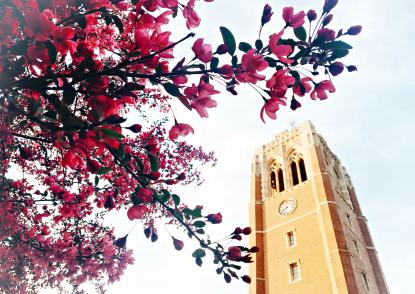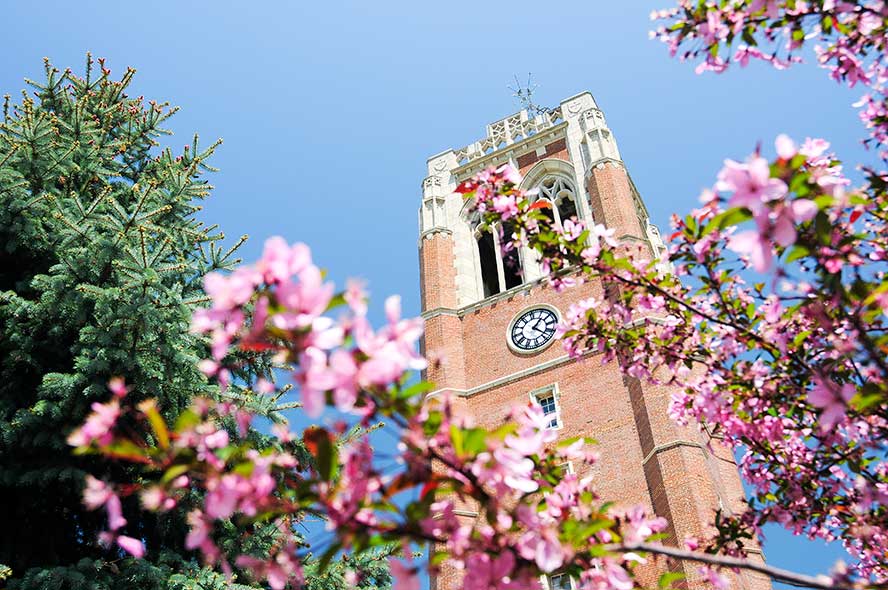
John Carroll University today announced the continuation of remote learning for the duration of the fall semester. Dr. Michael D. Johnson, president of John Carroll, outlined the reasons for the decision in a message to students, parents, faculty, and staff (below) which focus on protecting the physical and mental health, safety, and wellbeing of the JCU community, and providing the best possible academic and student experience through the lens of our Jesuit Catholic mission.
Dear Students,
I write to you today with an update about our plan for the fall semester.
As an institution, we have two priorities right now: protecting the physical and mental health, safety, and wellbeing of our community, and providing the best possible academic and student experience through the lens of our Jesuit Catholic mission. With these priorities squarely in focus, we have made the difficult, but prudent decision to maintain remote learning and off-campus living through the end of the fall semester. We care deeply about you and your overall experience, and bringing you back to on-campus living and learning at this time is simply not the right decision.
After extensive study and consideration, we made this decision based on predictive public health data about the way COVID-19 spreads within residential campuses and their surrounding communities, additional data gleaned from asymptomatic testing of our students, careful benchmarking of best practices and experiences at other universities, and the increase in cases in the State of Ohio among younger adults. Yesterday, Ohio Governor Mike DeWine announced that 35 percent of COVID-19 cases in Ohio during the last seven days were in the 18-22 age group, an alarming number. Collectively, this information gives us pause.
In early August, we conducted predictive modeling based on a publication in the Journal of the American Medical Association that helped us better understand the potential impact of the COVID-19 virus on our campus and community. In conjunction with other factors, the analysis and need for asymptomatic testing gave us enough concern to initially delay our return to campus for three weeks to assess the evolving situation and study options to avert the potential for an outbreak that would disrupt the educational process and college experience. During this pause, we monitored the situations on other campuses as we implemented phase one of our asymptomatic testing program. However, our models didn’t predict the degree of rapid viral spread observed on many American campuses large and small — a situation that threatens our nation’s efforts to extinguish the pandemic. In retrospect, the decision to delay wasn’t easy to make as we understood the potential impact on students, staff, and faculty, but we firmly believe that it was the correct decision.
On August 25, we began testing all residential students and student athletes during phase one of our asymptomatic student testing protocol. To date, we have received test results for 852 students, and while that testing is ongoing, it has so far revealed 26 positive cases in our community, including at least one “cluster” of cases among students living off campus.
Although our positivity rate of 3.02% is relatively low, it is categorically higher, by tenfold, than the base rates at campuses that have already opened up and are experiencing problems. Those same institutions -- many of which you have read about in the news -- have seen significant spikes in positivity rates within seven to ten days of being on campus, resulting in pivots to online learning, illness and isolation of infected students for several weeks, strict quarantining of entire campuses, students returning home, and undue stress on academic and institutional operations and resources.
Public health authorities are now anticipating a Labor Day surge in cases, which may not be fully reported until a week or more following the holiday, at the time our residential students would have mostly moved onto campus. An acute outbreak of significant magnitude on our campus would rapidly limit our ability to quarantine and isolate students. New guidance this week from Dr. Anthony Fauci, Director of the National Institute of Allergy and Infectious Diseases, and other public health officials strongly advises against returning infected students to their families and permanent residences, as it would only endanger their relatives and hometowns.
We worked toward and hoped to make a return to campus this fall possible in every way. We spent the summer preparing a robust return-to-campus plan designed to keep our community safe. We took the additional step of delaying in-person learning and on-campus living by three weeks to study the evolving situation that gave us pause and obtain additional data premised on the best public health and safety practices. And now we are making the extremely difficult decision to continue remote learning throughout the fall.
Given the data and anecdotal evidence that we are privy to, and in consideration of our stated priorities above, we are confident in this decision. Indeed, aside from the physical health risks of COVID-19, this is the least disruptive path forward on many levels, including for students’ academic success, mental health, and stress. We know you did not choose John Carroll University to take classes on Zoom, but we also know that a return to campus followed by a quarantine or a return home would be equally, if not more, disruptive and stressful for you.
